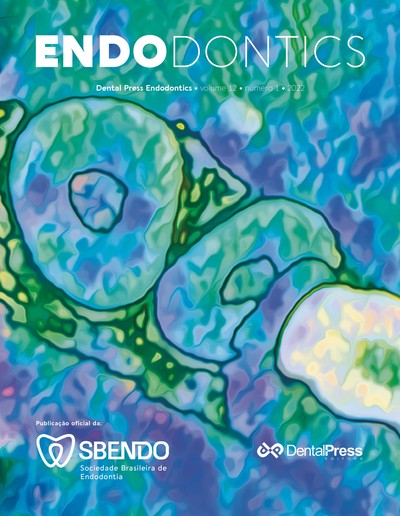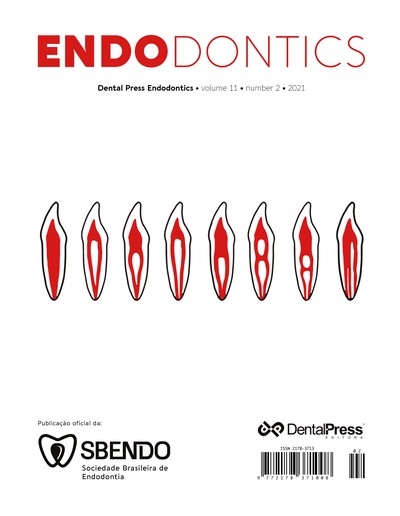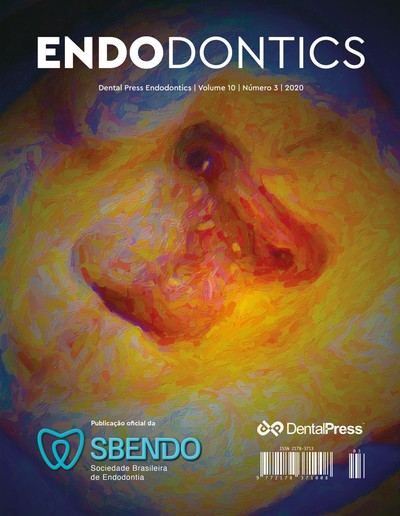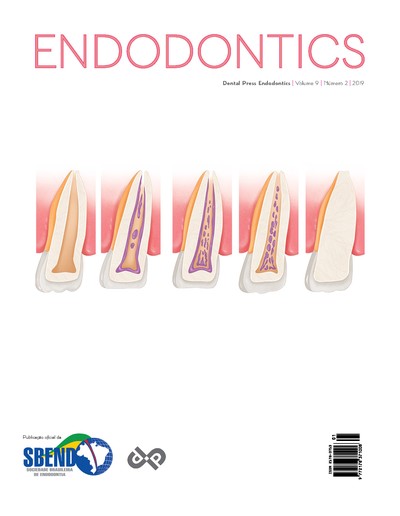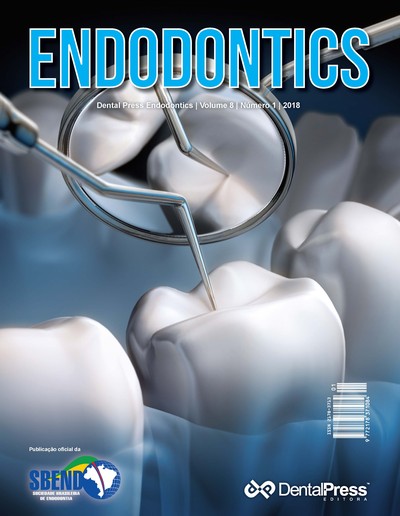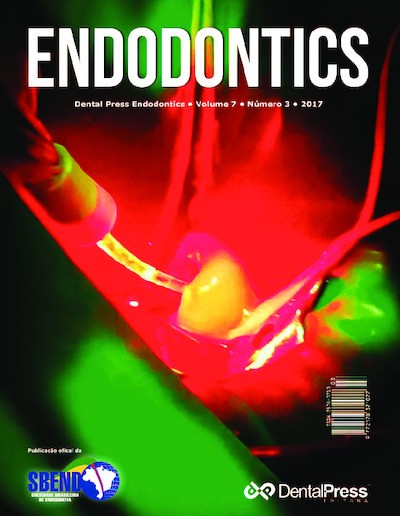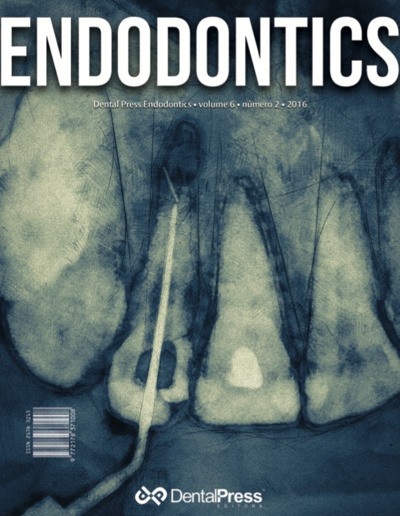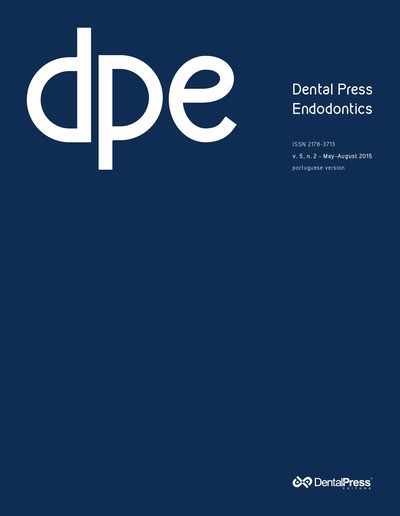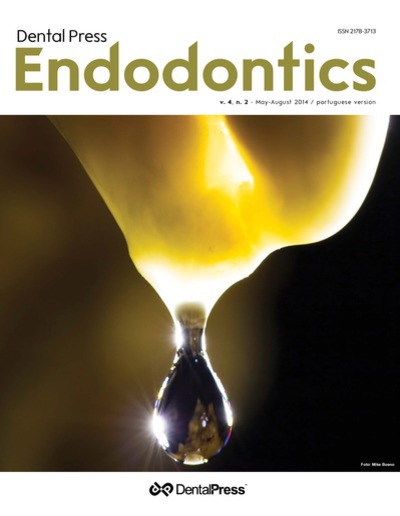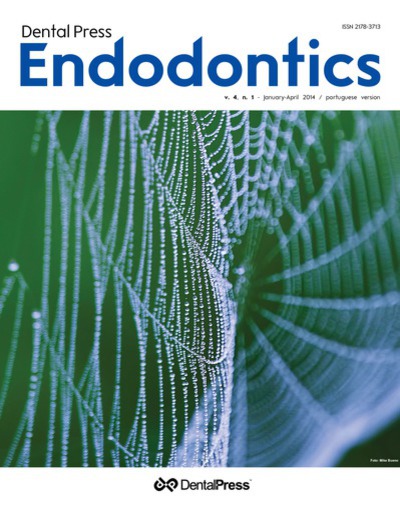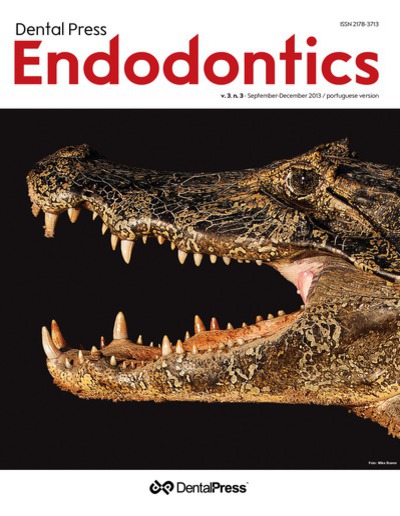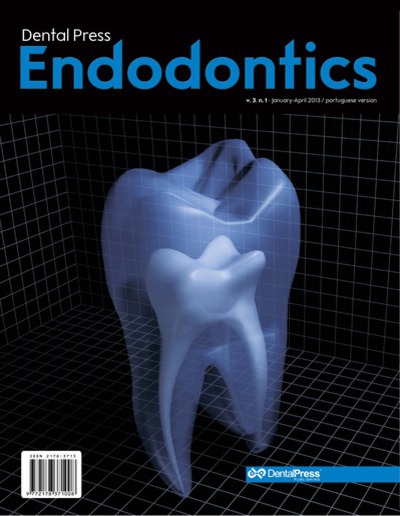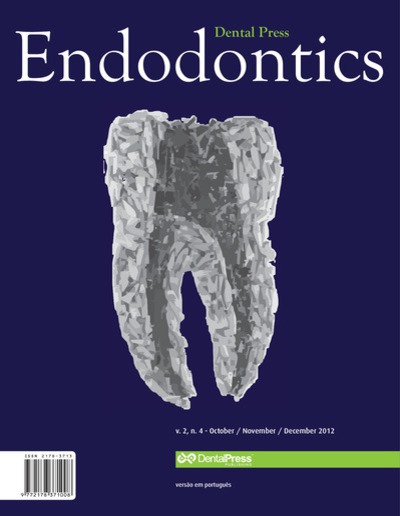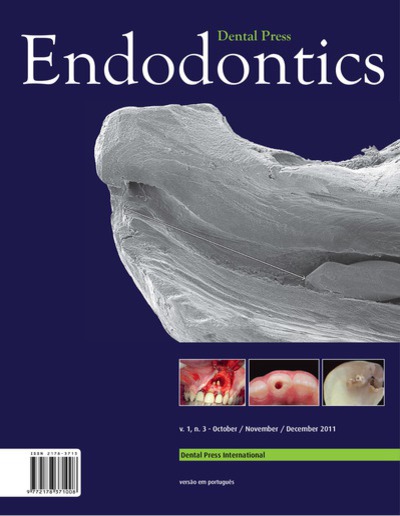
In vitro study of the antimicrobial action of experimental intracanal medications on Enterococcus faecalis biofilm
Nathália Evelyn da Silva MACHADO, Lorena Oliveira MENDES, Paulo Roberto GOLDONI, Graziela Garrido MORI
Background: The elimination of Enterococcus faecalis of the root canals is fundamental for endodontic success, since these microorganisms are difficult to killed, especially when organized in biofilms. The search for drugs or their combinations that can eliminate these microorganisms is one of the main therapeutic aim. This study evaluated the antimicrobial action of experimental intracanal medications on Enterococcus faecalis biofilms. Methods: Forty uniradicular bovine teeth were used; their crowns were removed, and the roots were instrumented and sterilized. The roots were contaminated with suspension containing Enterococcus faecalis and kept in an oven at 37°C for 30 days. The roots were divided into 4 groups according to the intracanal medication: I- experimental medication 1 (0.2% CHX/metronidazole/ doxycycline); II- experimental medication 2 (0.2% CHX/ metronidazole/minocycline), III- 2% chlorhexidine (2% CHX), and IV- saline solution. The roots were sealed and kept in tubes containing TSB in an oven for 7 days. Dentin was collected and seeded for 24 h for perform of CFUs. The values obtained were compared using ANOVA and Tukeys tests (p<0.05). When comparing the results, there were no differences among groups I, II and III; however, they were significantly different from group IV. Conclusion: The experimental intracanal medications exerted an antimicrobial action on Enterococcus faecalis biofilms.
Keywords: Biofilms. Chlorhexidine. Doxycycline. Metronidazole. Minocycline.
How to cite: Machado NES, Mendes LO, Goldoni PR, Mori GG. In vitro study of the antimicrobial action of experimental intracanal medications on Enterococcus faecalis biofilm. Dental Press Endod. 2020 Sept-Dec;10(3):43-8.
Wednesday, February 05, 2025 05:56
